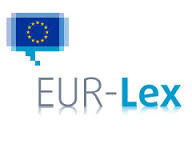Chemycal has been acquired by 3E
Learn MoreChemycal has been acquired by 3E
Learn MoreDiscover how Chemycal PRO helps you boosting your regulatory monitoring:

EXPLANATORY MEMORANDUM - The amount of plastic marine litter in oceans and seas is growing, to the detriment of ecosystems, biodiversity and potentially human health, and causes widespread concern. At the same time, valuable material that could be brought back into the economy is lost, once littered. Plastic makes up 80-85% of the total number of marine litter items, measured through beach counts.
Single Use Plastic (SUP) items represent about half of all marine litter items found on European beaches by counts. The 10 most found SUP items represent 86% of all SUP items (constituting thus 43% of all marine litter items found on European beaches by count). Fishing gear containing plastics accounts for another 27% of marine litter items found on European beaches. This initiative focuses therefore on the 10 most found SUP and fishing gear, which together represent around 70% of these marine litter items by count.
Plastics is widely available, persistent, and often has toxic and other harmful impacts. Due to its persistency, the impacts of plastic litter are growing as each year more plastic waste accumulates in the oceans. Plastic residues are now found in many marine species – sea turtles, seals, whales, birds as well as in several species of fish and shell fish and therefore enter the food chain. In addition to harming the environment and potentially human health, plastic marine litter damages activities such as tourism, fisheries and shipping.
The underlying drivers of the increase in plastic waste and its dispersal in the marine environment are linked both with the plastics value chain and market, and with individual behaviour and social trends. Several factors have led to the current situation including the wide availability of plastic, consumption trend for convenience, lack of incentives to ensure a proper collection and treatment of waste leading to poor management and insufficient infrastructure.
Europe has a responsibility to tackle marine litter originating from Europe and it has also committed to act at a global level, notably through the G7 and G20 but also through the implementation of the UN Sustainable Development Goals. This initiative will place the EU at the forefront of global efforts, giving credibility and strength to its international action in the field.
CONTINUE READING ON eur-lex.europa.eu
2013 © MyChemicalMonitoring. ALL Rights Reserved. About Us | Terms and Conditions